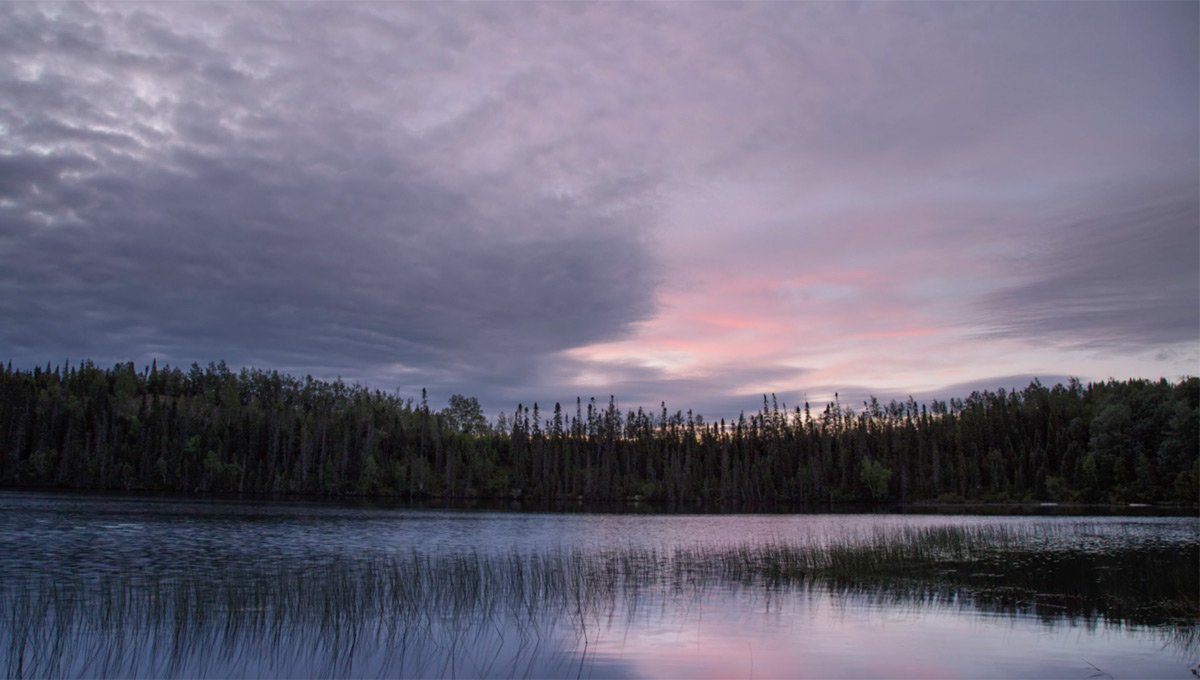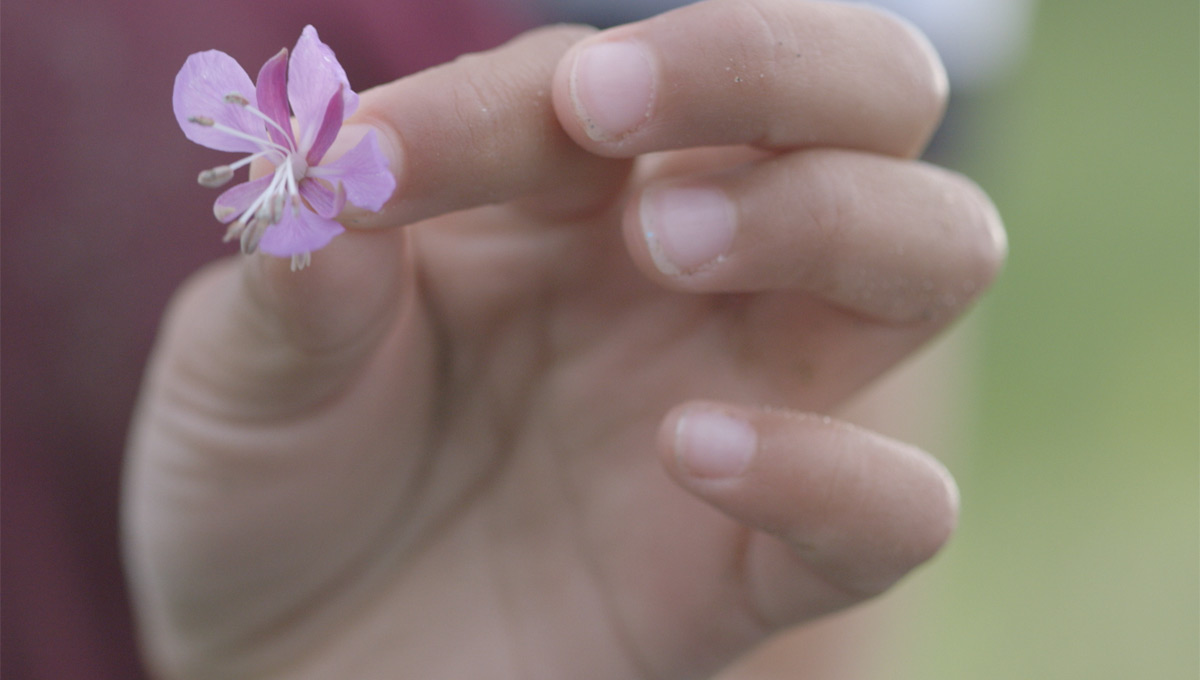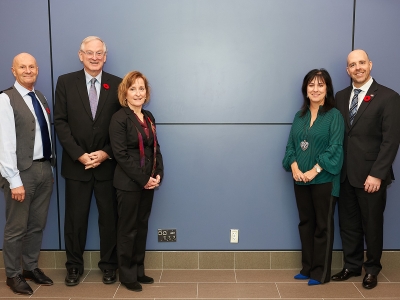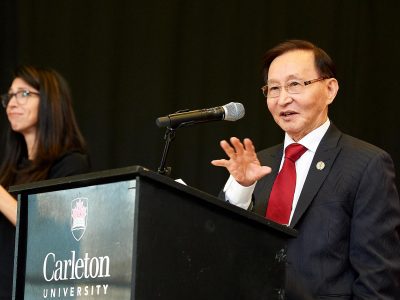By Sarah Brown
Photos by Stephanie Vizi
The seed of an idea for Mistissini Healing came on a summer’s day a few years ago. Carleton University’s Stephanie Vizi, BJ/14 (Journalism and African Studies) was spending time in northern Quebec, working as a leadership camp counsellor in the Cree community of Mistissini. As she sat outside in the sunshine, chatting with the teen girls she worked with each day, the talk turned to suicide.
“They were speaking in such a casual way about suicide — how many had tried it and why it didn’t work out — that I remember being deeply disturbed that day,” says Vizi.
She needed to better understand why these teens felt such immense hopelessness and decided that the power of film might be the way to get their stories told and get them the resources they need to experience hope for the future. “We know there’s a suicide epidemic, but we know these suicides as numbers rather than people with families,” she says.
On June 7, Vizi’s 23-minute documentary will screen at Ryerson University’s DocNow 2017 festival, which is free and open to the public. This year’s celebration of the work of Ryerson’s Master of Fine Arts in Documentary Media will include 15 films.

Making Connections at Carleton
Vizi credits her studies at Carleton University for opening her eyes to some of the issues that she would later tackle in Mistissini Healing — and for introducing her to the power of film.

Carleton University’s Stephanie Vizi, BJ/14 (Journalism and African Studies)
She acknowledges that her unconventional degree, which combines journalism and African Studies, made her a more thoughtful and well-rounded journalist while also giving her an awareness of the impact of colonialism.
“What I learned about colonialism in Africa has many parallels in the indigenous experience in Canada,” she explains.
“My combined degree gave me an understanding of misrepresentation and appropriation in the media.” She began to understand that the power of journalism could be about speaking with others, not for them.
While in her fourth year, she managed to squeeze into a Masters-level documentary course. She had been making television spots of 90 seconds; now she was suddenly challenged to create a 15-minute film in just 12 weeks. “It was by far my favourite class at Carleton, and led me to study more film at Ryerson.”

Making Mistissini Healing
In making Mistissini Healing, Vizi was determined to produce a humanistic portrait of what it’s like to be a Cree youth living in northern Quebec. That meant setting aside her own biases and ideas of what the film “should” be and taking a participatory approach, allowing the subjects to decide what they would talk about, the filming locations, and what would make the final cut. “It’s not my story — I’m an outsider,” Vizi explains.
“As an outsider making this film, I wanted to respect their culture, voices, and experiences.”
The documentary explores the trauma felt by intergenerational survivors of Canada’s residential school system by sharing the experiences of two young women. Dayna, just 15 years old, has been in foster care for most of her life. Wise beyond her years, she hopes to pursue an education as a counsellor, teacher, or doctor, using her skills to help people feel like they’re not alone. MaryJane, meanwhile, is 26 years old, the mother of a six-year-old daughter, Emma. She, too, is intent on healing her community, studying at Algonquin College to be a youth-care worker.
Vizi sees young Emma, who features prominently in the film, as representing the hope for the future. She will not grow up directly touched by residential schools. “If we can get our act together and treat indigenous children equally, she may grow up in a world where she doesn’t experience cultural assimilation,” says Vizi.

Goal Setting
Vizi’s goal is to have Mistissini Healing be viewed widely by three groups: the politicians, policymakers, and others who make decisions about how to allocate Canadian resources; the indigenous youth living within the James Bay community; and people “down south” who have heard the sound bites about reconciliation but still don’t feel they have a good sense of what’s going on and why we’re “still” talking about this.
And the future? Vizi runs a Toronto-based production company, Aporia Media, with a colleague. There, they do commercial work while also committing time to the social-issues documentaries.
Tuesday, June 6, 2017 in Film, Indigenous, Journalism and Communication
Share: Twitter, Facebook



